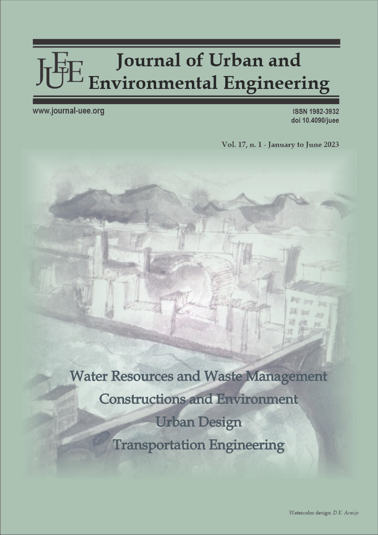Authors
-
Alisson Aguilar-Tello
Universidad Cientifica del Sur
-
Héctor Aponte
Universidad Científica del Sur
-
Julio Alegre
Universidad Nacional Agraria La Molina
Abstract
Urban parks make up the most significant proportion of green areas in cities and significantly help to mitigate climate change and improve the physical and mental well-being of the city inhabitants. In Latin America, one of the predominant species within the vegetation in these parks is Ficus benjamina (F. benjamina). However, this species has a questionable history due to the damage it produces to public infrastructures and its invasive non-native origin has biased its potential to provide ecosystem services. This study quantifies the capacity F. benjamina has for storing carbon (C) and producing oxygen (O2) in seven parks of one of the most affected districts of Lima, the Peruvian capital. The average C captured ranged from 2.31 ± 0.27 to 8.19 ± 1.88 t C ha-1, ranging from 8.48 ± 0.99 to 30.04 ± 6.91 t CO2 ha-1 and producing between 6.17 ± 0.72 and 21.85 ± 5.01 t O2 ha-1. These results show the benefits of these species in urban areas and should be considered for conserving these trees. Further research on ornamental plants, management policies implementation based on an ecological approach and good arboricultural practices will guarantee urban center purification in this global context.
Downloads
Download data is not yet available.
Author Biographies
Alisson Aguilar-Tello, Universidad Cientifica del Sur
Graduated in Environmental Engineering and associate researcher, with extensive experience in CO2 sequestration in urban ecosystems. Recognized for her work in winning thesis funds for the publication of scientific articles. His experience and skills include the application of innovative techniques for the measurement and modeling of CO2 in urban ecosystems, and the identification of strategies to reduce greenhouse gas emissions in urban environments.
Héctor Aponte, Universidad Científica del Sur
Biologist graduated from the Universidad Nacional Mayor de San Marcos (UNMSM) where he also obtained a Master's Degree in Tropical Botany and a Doctorate in Biological Sciences. He also has a Master's Degree in Ecology, Biodiversity and Evolution (EBE, specializing in Ecosystem Management) from the Paris Sud University (Orsay - France). Professor at the Scientific University of the South; Past Research Coordinator of the Marine Biology Degree (2012-2020). Associate Researcher of the Floristics Laboratory of the Natural History Museum (UNMSM). Director of Research and Development of the Peruvian Institute for Sustainability and Development since 2016. President of the Association for Botany of Peru. Professional Wetland Investigator Accredited by the Society of Wetland Scientists (USA). Author of multiple scientific articles and books on the Peruvian flora with special interest in wetlands and marine-coastal ecosystems.
Julio Alegre, Universidad Nacional Agraria La Molina
From 2003 to actually is full time Principal Research Professor in Universidad Nacional Agraria La Molina . Part time professor in Universida Cientifica del Sur since 2011. From 2013 to 2015 was elected member of the International Technical Panel on Soils (ITPS) with FAO. From 2008 to 2015 was the Programme Manager of research and building capacity VLIR-UNALM Project with the Flemish Belgian Universities. From March 2000 to December 2002. Senior Scientist and Coordinator of the Ecosystem Process and Management Program in Latino America, World Agroforestry Centre, based in Peru. Research in Carbon sequestration and nutrient cycling. January 1998 to April 2000. Senior Scientist, and Acting as Regional Coordinator for Latin America and a strategic fundraising and work plan were developed with national and international counterparts (NARs. NGOs and other CG Centers). January 1993 to December 1997. Senior Scientist and Coordinator of the Ecosystem Process and Management Program in Latino America, World Agroforestry Centre, based in Peru. Initiated and guided the Alternatives to the Regional Coordination of research and development activities in Latino America with the International Center for Research in Agroforestry. Developed soil physical, chemical and biological indicators for sustainable management in rained farming systems for efficient water use. Advise private companies in environmental aspects and recuperation of degraded lands and improve water quality. Implementation (with multmultidisciplinary national and international counterparts) of research projects on sustainable management of natural resources in the humid tropics of Peru (high and low jungle and highlands) Brazil and Mexico, Technical assistance for planning, monitoring and evaluating research and development programs in Peru, Brazil, Brazil and Mexico,
License
All Rights Reserved.
All items (including but not limited to abstracts, artwork, poetry and articles) published by this journal are copyright of the original authors.
To use articles beyond reasonable academic or journalistic norms, you must first gain permission from the individual authors.
To reproduce any artwork, poetry, fiction or other artistic forms contained in this journal in any form you must first gain permission from the artist.
All authors and artists are responsible for the content of their work, including proper citation, attribution and usage permissions.




